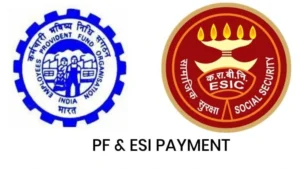
A recent opinion in legal circles has reignited debate over the constitutional importance of the Ministry of Law and Justice, emphasizing that the ministry must always hold a Union Cabinet rank to ensure effective governance, legislative integrity, and the rule of law in India.
The Argument for Cabinet Status
Legal experts argue that the Law Ministry serves as the backbone of policymaking, advising the government on constitutional matters, legislative drafting, and judicial appointments. Downgrading its position or merging it with other portfolios could undermine its autonomy and authority, potentially impacting decision-making in critical areas such as judicial reforms, litigation management, and legal transparency.
The Ministry’s influence extends beyond legal opinions — it shapes national policy frameworks by ensuring that every law passed aligns with constitutional mandates. As India continues to evolve with complex regulatory and economic changes, the ministry’s leadership must have direct representation at the Cabinet level for swift coordination with other ministries.
Historical and Institutional Context
Since independence, the Ministry of Law and Justice has traditionally been led by a Cabinet Minister, underscoring its constitutional importance. Historically, prominent legal luminaries like Dr. B.R. Ambedkar, Ashok Sen, and Arun Jaitley have held the post, maintaining a delicate balance between executive decisions and judicial oversight.
Recent discussions about restructuring certain portfolios have raised concerns that such a move could dilute the ministry’s independence. Many experts caution that legal scrutiny in governance requires senior political authority, which can only come from a Cabinet-rank position.
Broader Implications
Observers believe that maintaining the ministry’s Cabinet status is vital not just for administrative reasons but also for preserving constitutional accountability. A junior rank or shared portfolio might limit the ministry’s role in key judicial appointments, law reform commissions, and international legal negotiations.
India Advocacy Insight
Ensuring the Law and Justice Ministry retains Union Cabinet rank is essential for upholding the balance of power within the government. It preserves the ministry’s ability to safeguard legal ethics, uphold constitutional integrity, and influence cross-sectoral reforms. As India’s legal and economic landscapes grow increasingly complex, the ministry’s elevated status remains critical to the nation’s democratic framework.
![]()




